Introduction
Although this lens doesn’t bear the high-end Zeiss logo, this is a G-series lens indicating that the 70-400mm F4-5.6 G SSM II is a premium quality model for professional and advanced amateur use, much like Canon’s L-series. While it’s a full frame lens with a tempting range of focal lengths, it is more likely to appeal to users of the firm’s APS-C SLT cameras where it’s the equivalent of a 105-600mm. As a result, this is a very promising lens for wildlife photographers.
With a DxOMark score of 15, the Sony 70-400mm lens performs well and is one the most impressive zooms of its type. Transmission, Distortion, Vignetting and Chromatic Aberration scores are all excellent. The only weakness is that it could be sharper at full aperture but it is consistent across the field.
Sony 70-400mm F4-5.6 G SSM II mounted on Sony A900 Vs Sigma 120-400mm F4.5-5.6 DG APO OS HSM Canon mounted on Canon EOS 5D Mark III Vs Sony 70-300mm F4.5-5.6 G SSM mounted on Sony A900
Although we haven’t been able to test the earlier version of the Sony 70-400mm, the new lens out-performs the firm’s current 70-300mm f/4.5-5.6 G SSM, and that’s not just at one end of the range, as you might expect but at each focal length.
The Sony 70-400mm also compares favorably to the Sigma though that lens and camera combination has even better uniformity of sharpness than the Sony. It’s also much more accessibly priced and has built-in stabilization (an added cost during the design and manufacturing processes, even if the Sony SLT cameras have it built into the body).
Although we couldn’t compare this updated model with its predecessor, the 70-400mm F4-5.6 G SSM II is a very good performer overall. However, in a lens like this full-aperture performance is important and yet this is the one area where it’s weak. Fortunately, sharpness improves at 400mm at least centrally, making it a viable choice. Then again, at $2,200 (an increase of 10% on the earlier version), it remains a pricey option for Sony users.


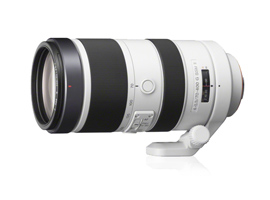


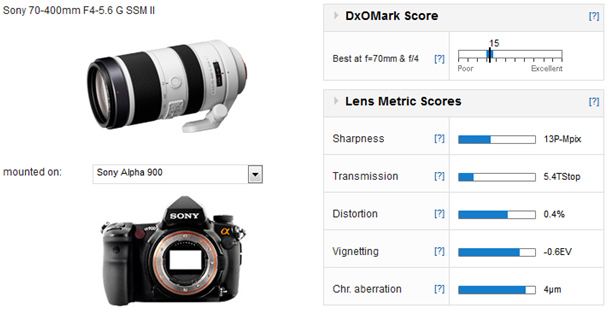
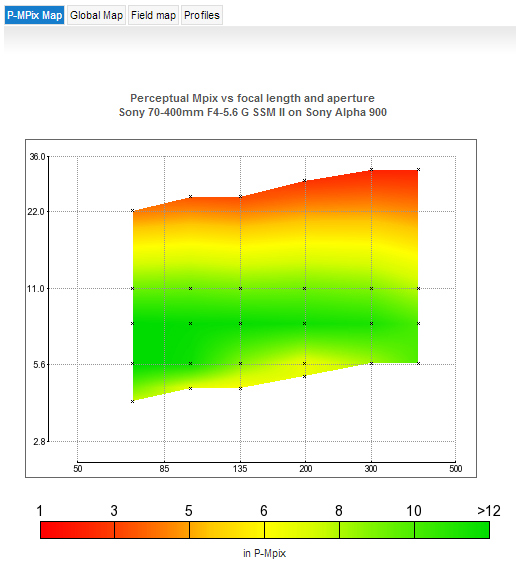
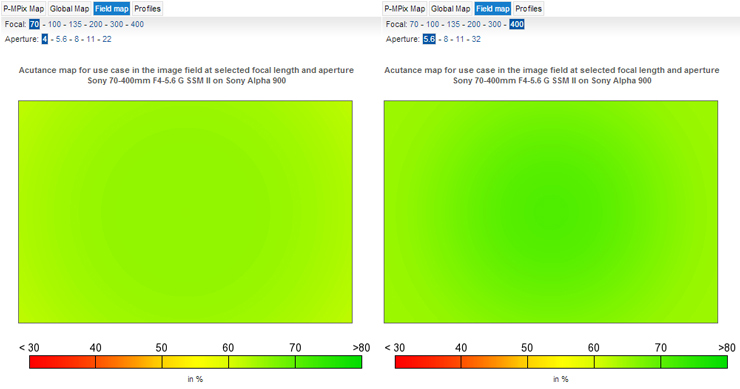
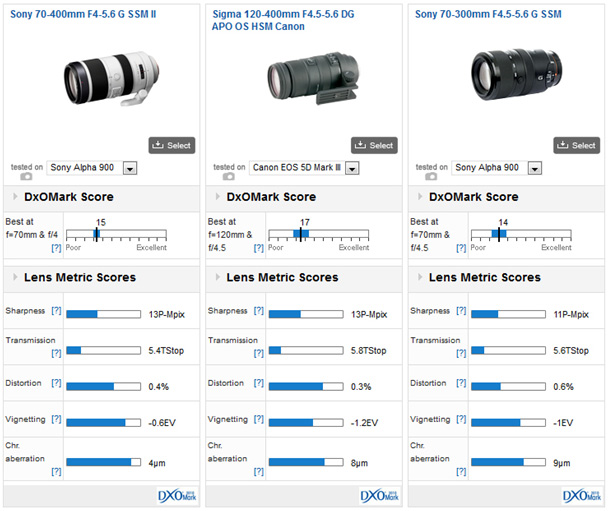
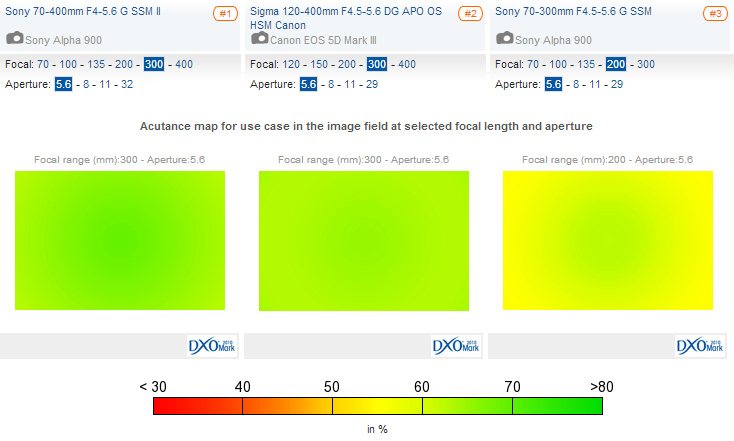
DXOMARK encourages its readers to share comments on the articles. To read or post comments, Disqus cookies are required. Change your Cookies Preferences and read more about our Comment Policy.